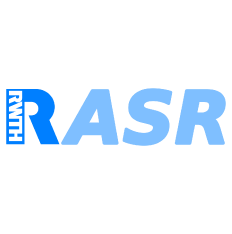Compare Products

|

|
Features Rapid integration: Quickly and easily create speech-aware applications “from scratch” or add speech recognition to existing applications, such as applications for automatic closed captioning or court reporting.
Voice command and control: Allow end users to enter, edit and correct text by voice, command and control the application by voice and transcribe from audio recordings.
Fast and accurate speech recognition: Add accurate and fast speech recognition using the latest Dragon technologies, to enhance your application with powerful dictation, voice editing, transcription or text-to-speech features.
Consistent user interface: Keep your own interface look, feel and navigation flow for consistency for your users, by integrating Dragon features directly into your application.
Powerful customization: Create your own custom commands or custom vocabulary that are specifically tailored for your application.
Easy adoption: Let your users immediately become voice enabled with no added hardware, including using the built-in PC microphone.
|
Features • Decoder for large vocabulary continuous speech recognition
◦word conditioned tree search (supporting across-word models)
◦optimized HMM emission probability calculation using SIMD instructions
◦refined acoustic pruning using language model lookahead
◦word lattice generation
• Feature extraction
◦a flexible framework for data processing: Flow
◦MFCC features
◦PLP features
◦Gammatone features
◦voicedness feature
◦vocal tract length normalization (VTLN)
◦support for several feature dimension reduction methods (e.g. LDA, PCA)
◦easy implementation of new features as well as easy integration of external features using Flow networks
• Acoustic modeling
◦Gaussian mixture distributions for HMM emission probabilities
◦phoneme in triphone context (or shorter context)
◦across-word context dependency of phonemes
◦allophone parameter tying using phonetic decision trees (classification and regression trees, CART)
◦globally pooled diagonal covariance matrix (other types of covariance modelling are possible, but not fully tested)
◦maximum likelihood training
◦discriminative training (minimum phone error (MPE) criterion)
◦linear algebra support using LAPACK, BLAS
• Language modeling
◦support for language models in ARPA format
◦weighted grammars (weighted finite state automaton)
• Neural networks (new in v0.6)
◦training of arbitrarily deep feed-forward networks
◦CUDA support for running on GPUs
◦OpenMP support for running on CPUs
◦variety of activation functions, training criteria and optimization algorithms
◦sequence discriminative training, e.g. MMI or MPE (new in v0.7)
◦integration in feature extraction pipeline ("Tandem approach")
◦integration in search and lattice processing pipeline ("Hybrid NN/HMM approach")
• Speaker adaptation
◦Constrained MLLR (CMLLR, "feature space MLLR", fMLLR)
◦Unsupervised maximum likelihood linear regression mean adaptation (MLLR)
◦speaker / segment clustering using Bayesian Information Criterion (BIC) as stop criterion
• Lattice processing
◦n-best list generation
◦confusion network generation and decoding
◦lattice rescoring
◦lattice based system combination
•input / output formats ◦nearly all input and output data is in easily process-able XML or plain text formats
◦converter tools for the generation of NIST file formats are included
◦HTK lattice format
◦converter tools for HTK models
|
LanguagesC CPP Java |
LanguagesCPP |
Source TypeClosed
|
Source TypeClosed
|
License TypeProprietary |
License TypeProprietary |
OS Type |
OS Type |
Pricing
|
Pricing
|
X
Compare Products
Select up to three two products to compare by clicking on the compare icon () of each product.
{{compareToolModel.Error}}Now comparing:
{{product.ProductName | createSubstring:25}} X